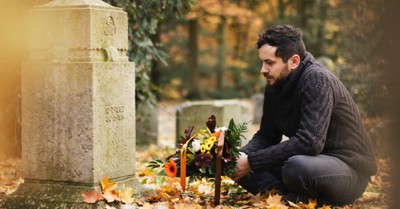The Legacy of Ross Perot: How to Be Your Best Self

Ross Perot died yesterday morning in Dallas after a five-month battle with leukemia. He was eighty-nine.
Whether you live in Dallas or Denmark, you probably know of Mr. Perot through his two campaigns for president and his pioneering work in computer services that made him a billionaire.
But if that’s all you know of him, you missed the most significant part of him.
Write your own legacy
I met Mr. Perot and his wife, Margot, at various functions in Dallas over the years and know him primarily through my friendship with his son, Ross Perot Jr. But everywhere I travel in Dallas, I meet his legacy.
The Morton H. Meyerson Symphony Center was built in part through a $10 million donation from Mr. Perot, who insisted that the center be named not for himself but for his longtime business partner. Mr. Perot and his wife made contributions to medical care in our city exceeding $100 million.
His work on improving schools and caring for our nation’s POWs and veterans was groundbreaking. The rescue he organized for company employees imprisoned in Iran became the basis for Ken Follett’s 1983 nonfiction book, On Wings of Eagles, and a TV miniseries.
If you read the Dallas Morning News profile of Mr. Perot, you’ll get a sense of the man and his enduring significance to our city. If you read the Washington Post profile, you’ll see a much more negative, politicized agenda at work. (In fact, it’s hard for me to believe that the person who wrote the Post obituary ever met the man or his family.)
Therein lies my point today: if you want to leave your best legacy, write it yourself. Focus on who you are more than what you do. Care less about what the world thinks of you than what you can do for the world.
As Ross Perot told a reporter who asked what he wanted to be remembered for: “Aw, I don’t worry about that.” Be your best self and leave the results to God.
The highest of all priorities
This week, we’ve been discussing the urgency and joy of preparing for eternity by living for heaven on earth. This decision starts with the choices we make that no one sees, the private character that is the foundation of our public lives.
Of all our priorities, this should come first. This is why Jesus taught us to love God “with all your heart” (Matthew 22:37). And it’s why Satan will do all he can to attack our souls.
Paul warned the Corinthians: “I am afraid that as the serpent deceived Eve by his cunning, your thoughts will be led astray from a sincere and pure devotion to Christ” (2 Corinthians 11:3). The enemy’s strategy has not changed since the Garden of Eden because it still works today.
The essence of his scheme is simple: he claims that what he offers will be worth more than its cost. You’ve heard all the rationales in your mind, as have I: “No one will know.” “No one will be hurt.” “You can always repent later.”
And it seems at the time that he’s right. We commit sins that no one knows about or seems to be hurt by. We confess our sins, repent of them, and know that we are forgiven. Then, when the tempter comes back, we start the cycle over again.
Three facts Satan knows about sin
Here’s what Satan doesn’t want you to know: he hates you. He is a “roaring lion, seeking someone to devour” (1 Peter 5:8). He would never offer you a moment of pleasure or apparent happiness unless he knows that it will cost you more than it will give you.
Thus, the more enticing the temptation, the worse its consequences.
Though you are not aware of these consequences, Satan is. He knows three results of sin:
One: Your future loss will exceed the present “gain.” Satan knows that your spouse and children will find out and be devastated, that your reputation will be ruined, that your suffering will far outweigh your pleasure.
You cannot predict these future consequences of present sin, but he can. And he is willing to wait, knowing that the further up the ladder you climb, the more people you will hurt on the way down.
Two: The eternal loss from your sin outweighs the present pleasure. Even though you confess your sins and are forgiven (1 John 1:9), the reward you could have received in heaven for faithfulness on earth is lost forever (1 Corinthians 3:15).
Three: The opportunity loss from your sin exceeds the gain it offers. Satan knows what God could do with our lives if we choose godliness over sin. We don’t see the ministry we never experience as a result of our sins, but our enemy does.
“If only I may finish my course”
Tomorrow, we’ll look at our struggle from God’s point of view. We’ll see that he takes precisely the opposite position on each of these outcomes.
For today, let’s remember that Satan hates us and that every temptation he offers us is intended to “steal and kill and destroy” (John 10:10). Let’s resolve to “give no opportunity to the devil” (Ephesians 4:27) by asking God for the strength to “resist him, firm in your faith” (1 Peter 5:9).
Let’s say with Paul, “I do not account my life of any value nor as precious to myself, if only I may finish my course and the ministry that I received from the Lord Jesus, to testify to the gospel of the grace of God” (Acts 20:24).
Then, no matter how wealthy or famous we become by the world’s standards, if someone asks us what we want to be remembered for, we can say, “I don’t worry about that.”
Can you?
For more from the Denison Forum, please visit www.denisonforum.org.
The Daily Article Podcast is Here!
Publication Date: July 10, 2019
Photo Courtesy: Getty Images/Justin Sullivan/Stringer



















